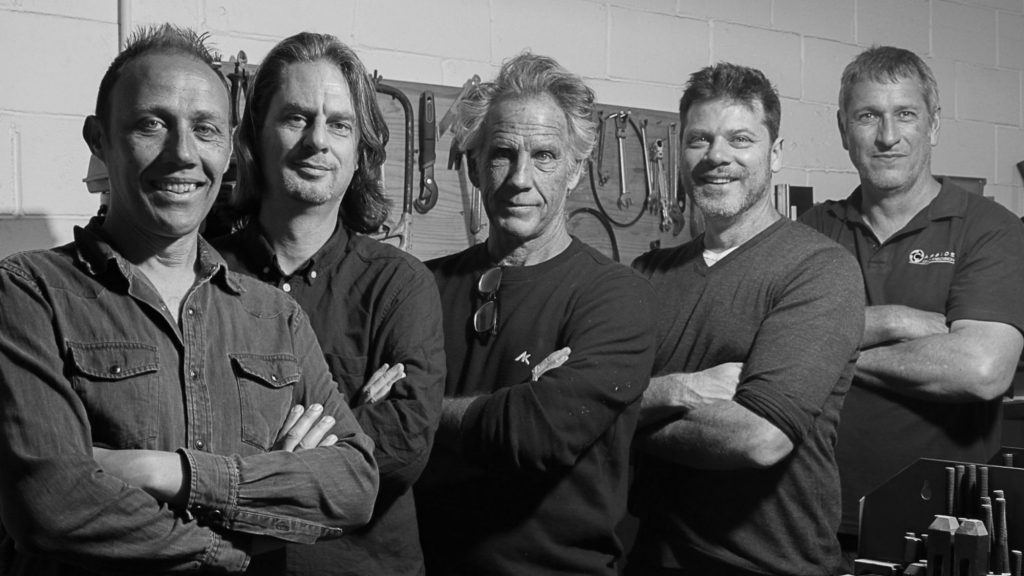For FlyH2 co-founder Mark van Wyk, the South African technology start-up he launched with Onno Huyser is a dream come true. Their hydrogen electric aircraft, called Dragonfly V, cleverly combines his passions for aviation, technology and the environment.
Speaking to Ventureburn, Van Wyk says he is hopeful that FlyH2 – named after flight and hydrogen – can play a meaningful role in building the hydrogen economy. He says, “We’re demonstrating that South Africa plays a vital role in commercialising hydrogen fuel cell applications.”
No ad to show here.
FlyH2 has already developed a climate-friendly, carbon-neutral aerial response solution – ready to be deployed at an industrial scale. To date, the start-up has received close to R2 million (about $62 500) in seed grants, including funding to build a prototype aircraft.
Dragonfly V, a hydrogen electric aircraft, is described as a long-endurance remotely piloted aircraft system priced for everyday commercial operations. It was designed from scratch with low operational costs, reliability and daily use in mind.
While the original funding launched FlyH2 in the agricultural sector, its innovation has evolved into environmental sciences too. The end goal? To further shorten the component supply chain, manufacturing aircrafts powered by hydrogen fuel cells in South Africa.
You’re stuck in a lift with a potential investor who can help you to scale your business. How would you market your start-up to them? Bear in mind that you only have a minute or so before your rainmaker has to get off the lift.
As the effects of climate change in Africa intensify, so does the need for rapid aerial response. FlyH2 has developed a climate-friendly carbon-neutral aerial response solution, ready to be deployed at an industrial scale.
FlyH2’s Dragonfly V is a large hydrogen-powered, commercially-affordable multi-day-capable fixed-wing drone tailored for climate risk mitigation missions. We’ve carefully crafted mission blueprints for sterile and beneficial insect release, targeted precision crop dusting, management of alien invasive plants, wildfire night monitoring, aerial emergency medical and humanitarian aid support and disaster risk and damage assessment.
Besides being a software developer, you’re also a private pilot and hang-glider. How has this passion fuelled your business dreams? And have you had any major start-up moments of clarity at 31 000 feet high?
My passions for aviation, technology and the environment fused into one huge passion – this project. Initially, I imagined hydrogen fuel cells could provide an electric alternative to small general aviation aircraft. Discovering that fuel cells can offer significant endurance advantage over batteries and significant reliability and maintenance advantages over internal combustion engines was a bonus – a bonus that forged FlyH2’s path into the future!
Would you describe FlyH2 Aerospace as a South Africa-founded start-up? If so, what is the uniquely South African problem you’re trying to solve through your start-up?
FlyH2 is most certainly a South Africa-founded start-up. I think where FlyH2 and South Africa really align is in supporting South Africa’s promotion of platinum by playing a small part in building the hydrogen economy.
We’re demonstrating that South Africa plays a vital role in commercialising hydrogen fuel cell applications, like AngloPlat’s Mining Truck and Our Aircraft. We’re, of course, using local talent and building the local supply chain which really allows us to build military-grade aircraft but fulfilling commercial needs.
What is the biggest personal challenge you have had to overcome to move your business forward?
My biggest challenge has been to adapt my mind to operate on a business, financial, technical and creative modality – and often all at the same time. My business partner, Onno Huyser, played a big role in helping me shame my tech mind with a little more business-oriented in my approach.
Also, when we first saw the potential for the concept of hydrogen back in 2006, people thought we were crazy and it was hard to convince them otherwise. “What happens if it blows up,” was the first question we were always asked. Fortunately, today hydrogen is a house-hold term that doesn’t necessarily make people immediately think of the Hindenburg or an H-Bomb.
It’s one thing to have a bright idea, but it’s an entirely different ballgame to fund ones dream. How have you funded FlyH2 Aerospace thus far?
So far we’ve been awarded two seed grants of R500 000 and R780 000 from the South African government. We then won a third grant of R680 000 from Oz Minerals’ CSI programme, “Think and act differently”. The third grant was sufficient for us to build a prototype aircraft. We’re about to enter a new fundraising round for commercialisation.
So, about that… FlyH2 Aerospace now wishes to raise further capital to commercialise its intellectual property and technologies. What’s the ultimate dream?
In the short term, FlyH2 will further develop its aircraft and software to a level of unparalleled simplicity and reliability – making the choice of aircraft a no-brainer to any rural operator. By proving themselves in the field, FlyH2 will become a household brand, much like General Atomics or Boeing Insitu but as a commercial brand providing positive impact over farms and disaster areas world-wide.
Our longer term vision is to further shorten the component supply chain, manufacturing the fuel cell stacks in South Africa under license from manufacturer holders abroad.
ALSO READ: WiBox founders turn SA power cuts into start-up success
